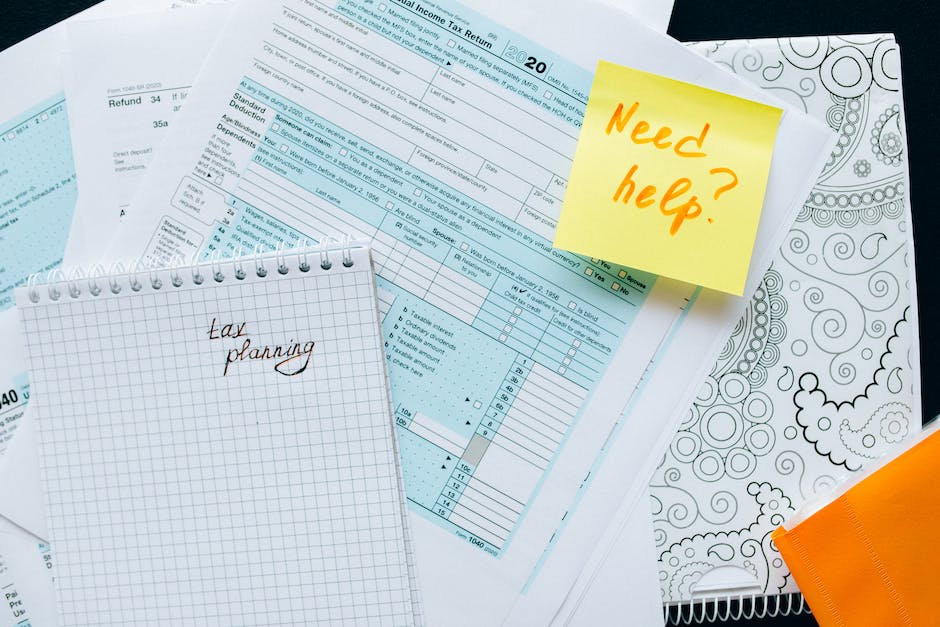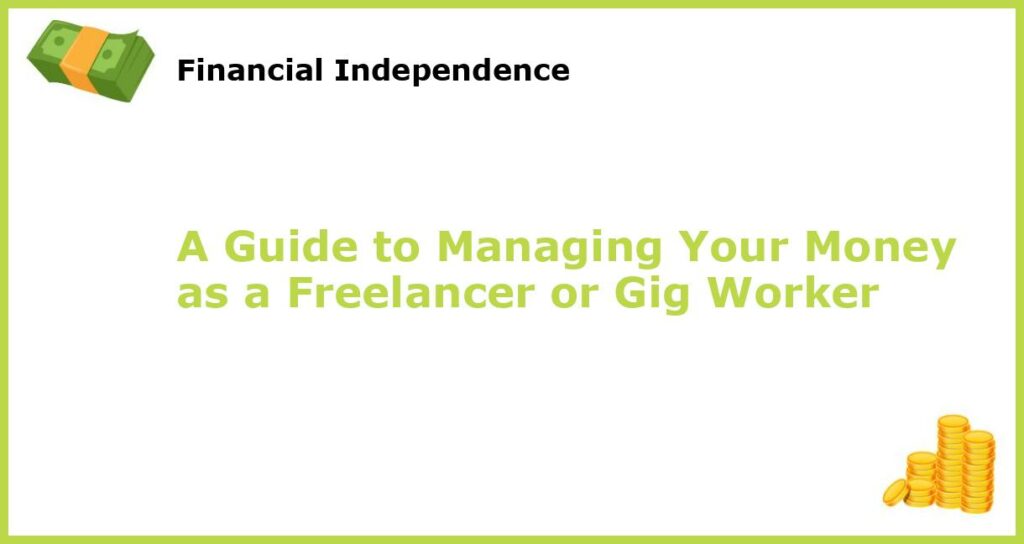If you’re a freelancer or gig worker, congratulations! You’re your own boss, and that can be both a blessing and a challenge. One of the biggest responsibilities that come with freelancing is managing your own finances. You need to make sure you’re pricing your services fairly, saving for emergencies, keeping track of your income and expenses, and planning for taxes and retirement. Here’s a guide to help you manage your money as a freelancer or gig worker.
Know Your Worth

Knowing your worth is crucial as a freelancer or gig worker. When you’re your own boss, you don’t have a set salary, so it’s up to you to determine how much you charge for your services. Before you set your rates, research industry standards to get a sense of what other freelancers are charging. Then, consider your own skills, experience, and the value you offer your clients. Don’t undersell yourself. You don’t want to burn out or get resentful because you’re not earning enough after working too hard.
You might also want to consider charging a little more than you initially think you should, giving yourself a buffer for negotiation when potential clients want to negotiate down your prices.
To price your services accurately, use an hourly or project-based rate. Factor in the time it takes to complete the task, the materials needed, taxes, and any other expenses, and then add your desired profit margin.
Create an Emergency Fund

When you’re self-employed, you don’t get the luxury of steady paychecks or benefits. This also means that during times when you’re not earning money, such as gaps between projects, illnesses, or unexpected expenses, you can quickly find yourself without cash. That’s where an emergency fund comes in, it helps you cushion yourself during such periods.
Aim to save three to six months of living expenses in an emergency fund. This will help you to keep your business, cover your personal expenses or give you a financial buffer when you need it. A savings account, money market fund, or investment account that you can quickly access is a good option.
Start by automatically transferring a portion of your income to your emergency fund each month. An amount you are comfortable with. This will help you get a handle on your regular financial responsibilities while still setting aside money for your fund.
Track Your Income and Expenses

It’s easy to lose track of your finances if you’re dealing with different payment structures like retainers, projects with different stages and rates, or various clients. As a freelance worker, you need to track your income and expenses so that you can have a clear picture of the health of your business. money management apps can help you do this easily.
You will want to track your cumulative and estimated taxable and non-taxable incomes to make your tax paying process easy. Sure, it can feel like a hassle, but having a solid sense of your financial flow will make it easier to keep track of your profit and growth opportunities. If you do this, you’ll soon find yourself making informed decisions about your business’s financial health, and pricing and expenses.
Set Financial Goals

If you want to succeed in your career as a freelancer or gig worker, you need to be intentional about your financial goals. Your personal and business goals should be such that they impact your general financial management positively. You need to identify what you hope to achieve in the short term and long term, and then figure out realistic ways you can start working towards them.
For instance, if you want to buy a house in five years, you will then have to create a savings plan towards that goal. Be specific; How much do you need to save each month or year? What are the milestones you aim to reach along the way? Continue to review your goals regularly and adjust them based on your progress.
Separate Personal and Business Finances

Failing to separate personal and business finances is common among freelancers and gig workers. It’s important that you create separate bank accounts, books of record, and credit cards for your business to help with accountability and easy record-keeping. Not separating finances can lead to overspending or even the IRS coming down hard on you for improper financial documentation or discrepancies in record keeping.
Keeping your financial statements organised and transparent is not only important for taxes, it also provides an accurate picture of your financial health. It’s easier to make decisions about hiring or taking new projects if you have access to accurate information about cash flow and profitability.
Plan for Taxes

The biggest surprise for new freelancers or gig workers is the self-employment tax. In addition to income tax, self-employed individuals are required to pay self-employment tax. While it may seem daunting, it is possible to stay ahead of your payments.
Start by estimating how much tax you’ll owe at the end of the year, and saving a percentage of your income each month in preparation. Make sure
you plan ahead and keep accurate records of your income and expenses. A tax professional can help you understand what’s due and when, and help you find ways to minimize your tax bill.
Invest in Retirement

A lot of freelancers and gig workers focus solely on maintaining cash flow and forget to think about their long-term goals. However, the self-employed can reap substantial benefits by planning for retirement. When it comes to investing in your future, there are many options available to self-employed individuals, including individual retirement accounts (IRAs), Roth IRAs, and solo 401(k)s. By starting early and investing regularly, you can safeguard your financial future.
Investing in a solo 401(k), a SEP IRA, or a SIMPLE IRA is not only crucial for your retirement benefits, but it’s also a way for you to lower your taxable income. You can deduct from your taxable income the amount you contribute to your retirement account, thereby reducing your tax liability while securing your future.
Increase your Rates Regularly

Increasing your rates regularly is a solid strategy for growing your business as a freelancer or gig worker. As you gain more experience and skills, you should consider increasing your rates to reflect that.
If you’re hesitant to increase your rates for current clients, start with new ones or provide add-on services to current clients to increase your income. Be mindful and do your research to make sure your pricing remains fair and competitive as your reputation and skills grow.
Manage Debt Wisely
As a freelancer or gig worker, the pressure of irregular income flow might get you tempted into taking on debt when you experience cash flow constraints. It is important to manage this debt wisely, taking into consideration reasonable debt-to-income ratios, interest rates, and cash flow forecasting.
If you find yourself with debt, focus on paying off high-interest debts first and not incurring unnecessary new debts. You can also consider cheap credit lines with a good interest rate and utilise them strictly for work-related expenses.
Be Consistent
Managing your finances is a marathon, not a sprint. Therefore, focus on being consistent. Develop a routine in managing and monitoring your financial reports and stay accountable to yourself to uphold the routine. Maintaining consistency helps create a sustainable routine that you could adhere to, in the long run.
Additionally, it might be beneficial to find an accountability partner, a financial planner, or an accountant to keep you focused and provide an objective perspective of your overall financial situation.







